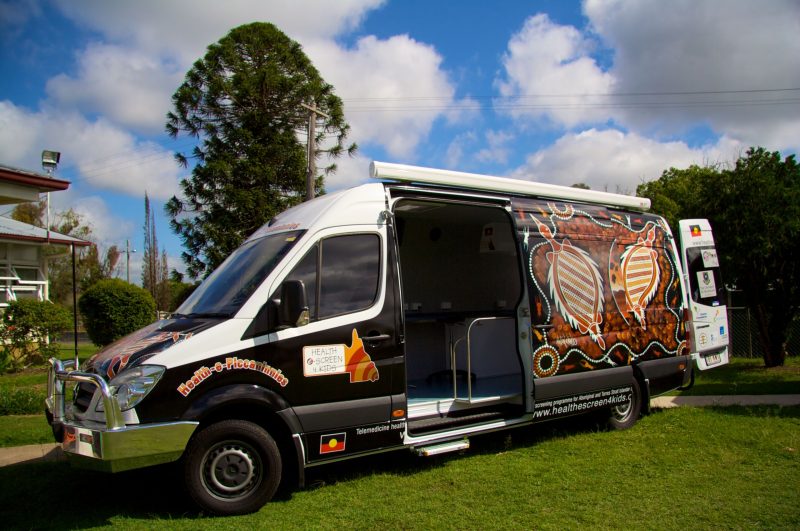UQ’s Centre for Online Health (COH) has united its telehealth efforts to provide better health care for Aboriginal and Torres Strait Islander communities.
COH Director Professor Anthony Smith is leading several major telehealth research projects, providing remote communities in Queensland with improved access to specialist services for common medical conditions such as ear diseases, diabetes and dementia.
“The COH has been working with various Indigenous communities since 2006,” Professor Smith explains.
“Our early work began in Cherbourg, where we pioneered a mobile screening service (van) for the routine assessment of ears and hearing function in young children.
“What began as a research project has continued into a ‘community-driven’ telehealth service, which is accessed by hundreds of school-aged children in the Cherbourg and South Burnett region every year.”
The success of this telehealth project inspired the COH to branch out into other health disciplines to address other identified needs in Cherbourg, Charleville, Cunnamulla and the Torres Strait.
“We are currently implementing telehealth strategies to improve access to specialist aged-care services for carers and people living with dementia.
“Our focus is on empowering health service staff in these communities through training and support.
“The skills and experience gained then remain in the community, where local staff can deliver their own education programs, conduct dementia assessments and prepare cases for telehealth consultation.”
The use of videoconferencing and other digital health technologies is helping to bridge the gap in healthcare.
“A videoconference appointment can bring together the patient, the health workers, the local medical team, and the specialist all in one room – without the need for a full day of travel by car.
“These interactions also offer valuable training opportunities, the sharing of information, and a collaborative approach to the delivery of care.”
The tyranny of distance had isolated many of these remote communities from equitable health care, where medical conditions could manifest for months without proper treatment.
“Someone might have to wait three months before they can see a doctor about their diabetes or talk to a dermatologist about a worrying skin lesion if they don’t want to travel to the city.
“We know from published reports that Australians living in rural and remote communities experience higher rates of disease and lower life expectancy when compared to people living in major urban locations.”
Leaving the community for a specialist appointment is no small feat for locals, who face increased financial pressure and fear of the unknown.
“Many people do not like leaving their homes – and travelling to and from the city can be an expensive and scary prospect.
“Telehealth enables more equitable access to similar specialist health services which can be typically expected in a major city hospital.
“The success of our telehealth projects comes from a grassroots approach which encourages collaboration with community healthcare workers, elders and other stakeholders.
“We don’t see ourselves as a standalone unit that goes into a community, offers a solution and then leaves.
“Our work is based on strong relationships with community and a shared approach to solving health-related problems which are important for the community.
“Our research helps us better understand how different models of care work within Indigenous communities, and the role of telehealth in various settings.
“Most importantly, we nurture the partnerships we have developed and enjoy seeing the benefits continue beyond the life of individual projects.”
UQ’s Centre for Online Health is a foundation centre of the Centre for Health Services Research.
This story is featured in the Winter 2019 edition of UQMedicine Magazine.
Full Article: https://stories.uq.edu.au/medicine/indigenous-telehealth-services-join-forces/index.html

